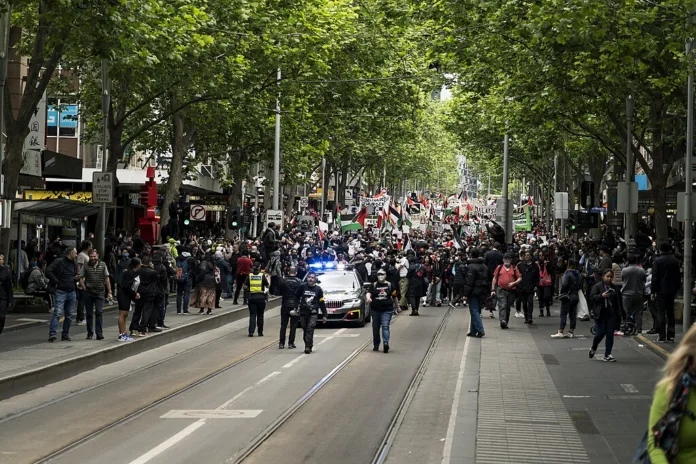RTÉ vows to quit Eurovision 2026 if Israel competes, citing Gaza killings and press clampdown
Ireland has dramatically escalated tensions around next year’s Eurovision Song Contest, declaring it will boycott the event if Israel is allowed to participate.
RTÉ, the country’s national broadcaster, confirmed on Thursday that it would withdraw from the 2026 contest unless the European Broadcasting Union (EBU) excludes Israel. The move makes Ireland the second broadcaster, after Slovenia’s RTVSLO, to make its involvement conditional.
In a starkly worded statement, RTÉ said:
“It is RTÉ’s position that Ireland will not take part in the 2026 Eurovision song contest if the participation of Israel goes ahead. The final decision regarding Ireland’s participation will be made once the EBU’s decision is made.”
The broadcaster pointed directly to the “ongoing and appalling loss of lives in Gaza”, as well as the targeted killing of journalists and the blockade preventing international reporters from entering the territory. It also highlighted the plight of hostages still trapped by the conflict.
The announcement piles pressure on the organisers in Geneva, who are already grappling with unprecedented protests. Demonstrations in Malmö and Basel in the last two years forced the EBU to delay the usual participation deadline from October to December, buying time for talks. This year, a consultant has been hired to explore how broadcasters can proceed amid the escalating political storm.
Embed from Getty ImagesEurovision’s director, Martin Green, acknowledged the intensity of the debate:
“We understand the concerns and deeply held views around the ongoing conflict in the Middle East. We are still consulting with all EBU members to gather views on how we manage participation and geopolitical tensions … It is up to each member to decide if they want to take part.”
The contest, due to be held in Vienna next May, is the world’s second largest televised event, attracting more than 160 million viewers. But the looming boycott row threatens to overshadow preparations.
Spain is also under mounting pressure to pull out. Culture minister Ernest Urtasun said earlier this week that Madrid should not take part if Israel remains, warning: “I don’t think we can normalise Israel’s participation in international forums as if nothing’s happened.” Spain’s Prime Minister Pedro Sánchez has gone even further, accusing Benjamin Netanyahu’s government of “exterminating a defenceless people” by bombing hospitals and starving children.
Israel’s own broadcaster, Kan, has already confirmed its intention to take part, despite being under threat of privatisation at home.
Broadcasters across Europe are now being forced to declare their stance. Iceland’s RÚV has said it will wait until consultations conclude, while Finland’s YLE acknowledged that the humanitarian crisis in Gaza was weighing heavily, even as it pressed ahead with song selection. Sweden’s SVT has also opened talks with the EBU.
For RTÉ, the decision carries risks. As Ireland’s public service broadcaster, it has been accused of blurring lines between editorial independence and political advocacy. Some critics argue its position compromises the impartiality expected of a state-backed news organisation.
But inside Ireland, the statement reflects the country’s longstanding scepticism towards Israeli policy and a growing solidarity movement with Palestinians. Similar sentiments are echoed in Slovenia and Spain, and campaigners across Europe are pushing for more national broadcasters to join the boycott.
The EBU now faces a defining decision: whether to stand by its traditional insistence that Eurovision is a “non-political cultural event”, or concede that the war in Gaza has made neutrality impossible.
If Israel remains, a fractured contest could follow — with high-profile withdrawals shaking the foundations of a spectacle meant to symbolise unity across the continent.
